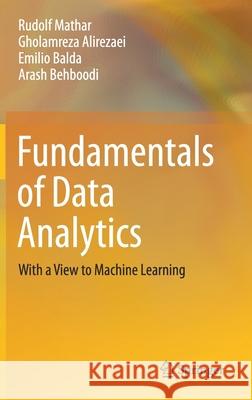Fundamentals of Data Analytics: With a View to Machine Learning » książka
topmenu
Fundamentals of Data Analytics: With a View to Machine Learning
ISBN-13: 9783030568306 / Angielski / Twarda / 2020 / 127 str.
Fundamentals of Data Analytics: With a View to Machine Learning
ISBN-13: 9783030568306 / Angielski / Twarda / 2020 / 127 str.
cena 362,27
(netto: 345,02 VAT: 5%)
Najniższa cena z 30 dni: 346,96
(netto: 345,02 VAT: 5%)
Najniższa cena z 30 dni: 346,96
Termin realizacji zamówienia:
ok. 22 dni roboczych.
ok. 22 dni roboczych.
Darmowa dostawa!
Kategorie:
Kategorie BISAC:
Wydawca:
Springer
Język:
Angielski
ISBN-13:
9783030568306
Rok wydania:
2020
Wydanie:
2020
Ilość stron:
127
Waga:
0.37 kg
Wymiary:
23.39 x 15.6 x 0.97
Oprawa:
Twarda
Wolumenów:
01
Dodatkowe informacje:
Wydanie ilustrowane











